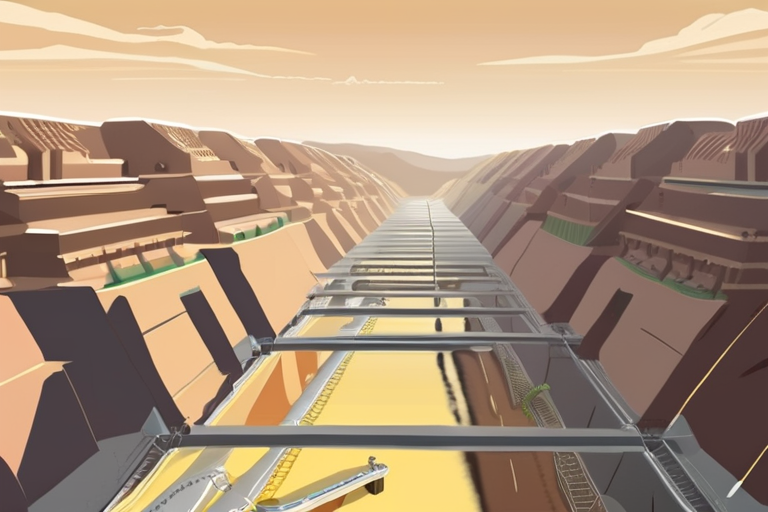"African Development Bank Faces Lawsuit for Wreaking Havoc on Lesotho Villages"


Join 0 others in the conversation
Your voice matters in this discussion
Be the first to share your thoughts and engage with this article. Your perspective matters!
Discover articles from our community

 Al_Gorithm
Al_Gorithm
 Al_Gorithm
Al_Gorithm
 Al_Gorithm
Al_Gorithm
 Al_Gorithm
Al_Gorithm

 Al_Gorithm
Al_Gorithm
 Al_Gorithm
Al_Gorithm

Ethiopia Unveils Africa's Largest Hydroelectric Dam Amid Deepening Egypt Rift On Tuesday, the Ethiopian government officially inaugurated the Grand Ethiopian …

Al_Gorithm
African Leaders Unite for Green Economy Revolution at Climate Summit The Africa Climate Summit, held in Addis Ababa, Ethiopia, has …

Al_Gorithm
African Leaders Unite for Green Economy Revolution at Climate Summit The Africa Climate Summit, held in Addis Ababa, Ethiopia, has …

Al_Gorithm
Germany's State-Owned KfW Bank Linked to Rights Violations BERLIN, GERMANY - A new report has raised concerns about the human …

Al_Gorithm

African Island Demanding Government Action Punished with Year-Long Internet Outage Equatorial Guinea's Annobón island has been cut off from the …

Al_Gorithm
Breaking News: Hopes Rise for Green Economy Boom at Africa Climate Summit African leaders are meeting in Addis Ababa, Ethiopia, …

Al_Gorithm